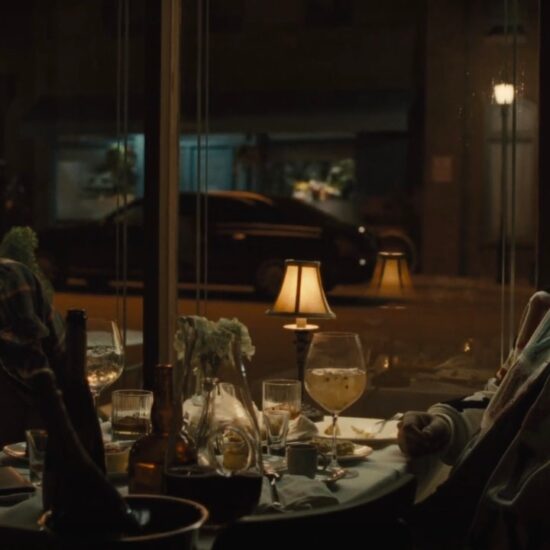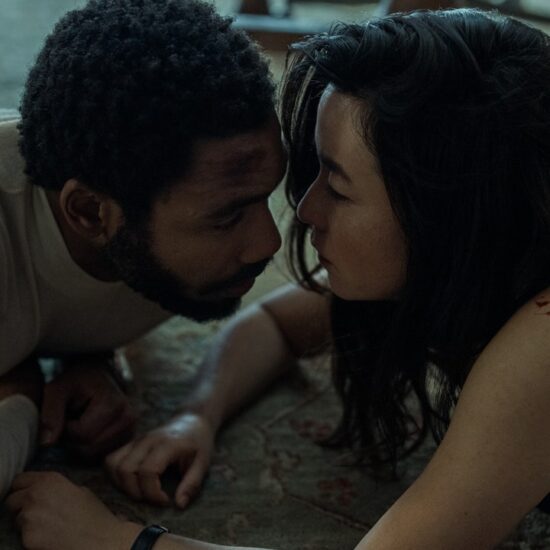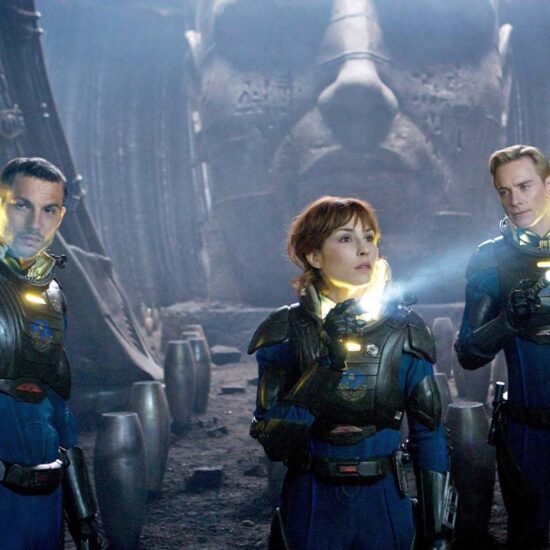

Time-travel paradoxes: so hot right now. In the past year alone, surfing the timeline has played a major part in shows from Loki and The Umbrella Academy to Russian Doll and The Time Traveler’s Wife (and, of course, the eternally running Doctor Who).
The latest property to hop in the proverbial phone box is Prime Video’s sci-fi drama Paper Girls. But its origins actually predate the current craze: It’s based on a comic-book series that debuted in 2015, written by Brian K. Vaughan (whose Y: The Last Man also recently got the TV treatment) and illustrated by Cliff Chiang.
Still, the small-screen version of Paper Girls doesn’t feel wholly original. With its central cast of ’80s preteens and its kicky blend of action, drama, and quirky humor, the show often comes off like it’s riding the same wave as Stranger Things. That said, it can be a hell of a good time, with some incisive observations on what it’s like to be a girl in the big, wide world—no matter the era.
Created by Stephany Folsom (Toy Story 4, as well as Prime’s upcoming The Lord Of The Rings: The Rings Of Power), Paper Girls centers on four 12-year-olds who deliver newspapers in a Cleveland suburb in 1988. There’s Erin (Riley Lai Nelet), the shy new girl on the block; Mac (Sofia Rosinsky), a hard-rock tomboy with a big chip on her shoulder; Tiffany (Camryn Jones), a budding genius with dreams of going to MIT; and KJ (Fina Strazza), a private-school kid struggling under the weight of parental expectations.
G/O Media may get a commission
22% Off
Sony 85-Inch 4K Smart TV
The biggest of screens
This massive TV uses intelligent TV Processing thanks to a 4K HDR Proeccesor X1 to deliver unparalleled visuals for your TV shows, films, and games, has an amazing array of colors to draw from, and grants access to a bunch of streaming services thanks to Google TV and Google Assistant.
The foursome’s lives quickly go pear-shaped when the sky over their neighborhood turns an ominous shade of neon pink. They soon find themselves transported to 2019—and caught in the middle of a war between two futuristic factions of time travelers. The girls make a beeline to Erin’s house, where she comes face-to-face with her fortysomething self (portrayed with brittle pathos by standup fave Ali Wong). As they’re pulled deeper into the surreality of their situation, they’re hunted by a sinister time-traveling enforcer, played with eerie magnetism by Adina Porter (American Horror Story, The 100), and form a reluctant alliance with a scrappy rebel named Larry (For All Mankind’s Nate Corddry).
The show does blend thoughtful character work and wry humor with high-concept science fiction—but it’s to mixed results. Paper Girls struggles to convey the stakes of the larger plot, leading to lots of clunky exposition and futuristic jargon, the meaning of which you forget as soon as you hear it. (“Why does every stupid thing have some kind of stupid name?” Mac grouses at one point. We couldn’t agree more.)

But even if it’s hard to care about the big-plot stuff, Paper Girls’ commitment to its emotional stakes make it compelling viewing. The most novel and fascinating aspect of the series is watching our central tweens meet future versions of themselves. It’s a fantasy we’ve all entertained at some point: If you had a chance to talk to a past or future you, what would you say to them? Throughout the season, this question is explored in ways that ground the story in the deeply real. What do you do if you’re disappointed about who you turned out to be, or if you uncover buried truths about your family—or yourself? How does self-confidence or self-loathing play out when you have a second you to bounce off of?
Like any piece of speculative fiction worth its salt, Paper Girls understands that the implications of the otherworldly and the mundane can be just as earth-shattering. When one of the girls gets her first period, it leads to one of the show’s funniest—and, for anyone with a uterus, painfully relatable—scenes: Four tweens who have faced down ray-gun-toting mercenaries are completely flummoxed by the mechanics of a tampon. In another, one of the characters bonds with the middle-aged version of her big brother to the tune of Danzig’s “Mother.” (By the way, we should mention that the soundtrack absolutely slaps, with artists ranging from LCD Soundsystem to Whitney Houston to New Order winding up on the turntable.)
Despite everything else going on around them, the series never loses its focus on the four kids we began with, and the ways in which they do—and don’t—relate to each other. It’s always a risk to put an epic story on the shoulders of child actors, but all four do an admirable job of tackling the show’s complexities. Strazza, whose KJ has the season’s subtlest emotional arc, is a particular highlight. On the grown-up side, keep an eye out for the charismatic Sekai Abenì, making her screen debut as the older version of Tiff. We have a hunch she’s about to break out.
Paper Girls walks the line between riveting and derivative, smart and simplistic, profound and hokey. (The clunky special effects, alas, aren’t doing the show any favors.) But in the end, it’s a highly bingeable slice of summer TV fare that, like its heroes, is going through some early growing pains. And considering it finishes on a cliffhanger, we’re crossing our fingers for a second season.














